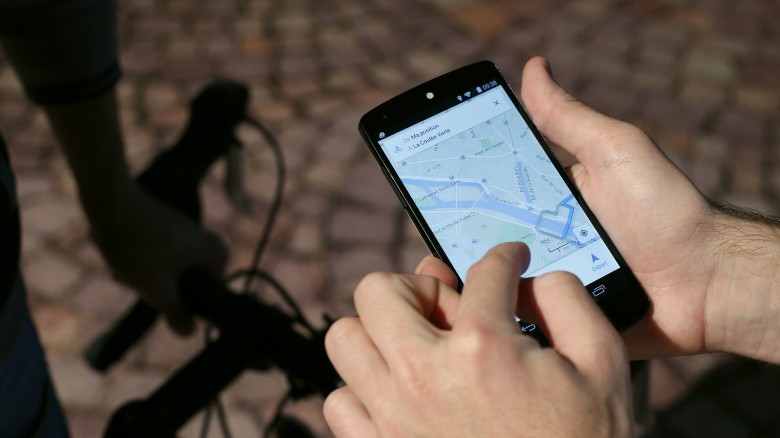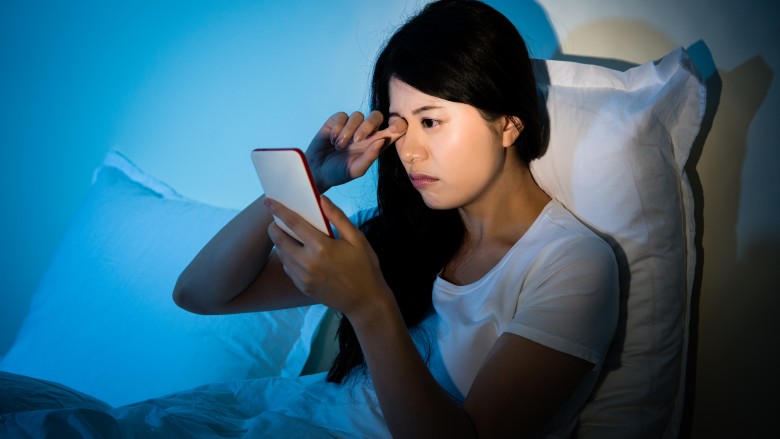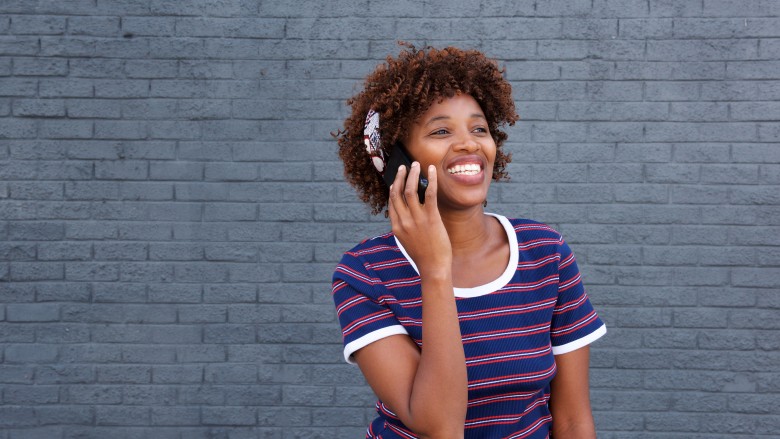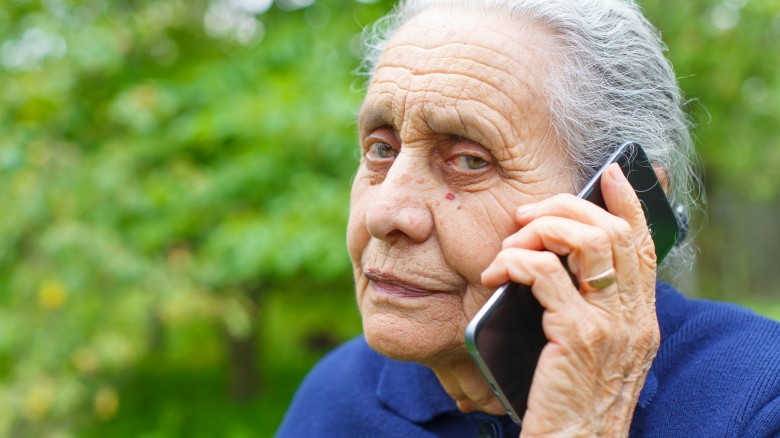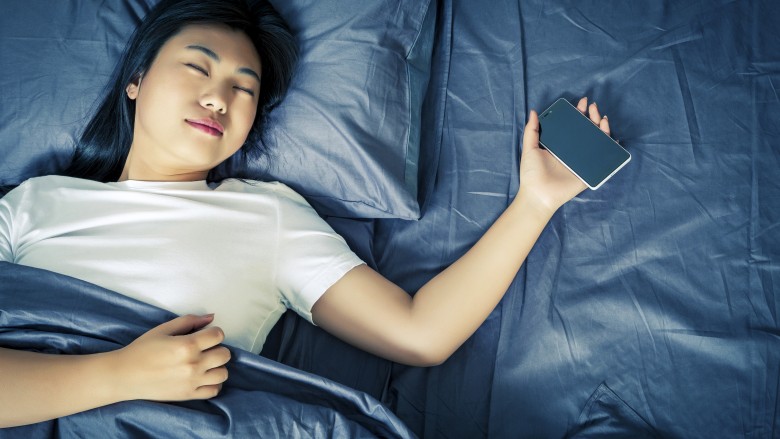Ways Your Cell Phone Is Bad For Your Health
It's an undeniable fact of modern life: our cell phones are a part of us. If you're the type that panics when you realize you've left your phone at home or in the car and are going to have to get through a few hours without it, you're definitely not alone. But those few hours might just be good for you, and it might do you even more good to forget it more often. While the science is still out on just how bad our cell phones can be for some aspects of our health, we have discovered some pretty scary stuff.
It's covered in germs
It's safe to say no one likes germs, and if you're an outright germophobe, you might want to listen extra closely to this one. Cell phones have about 10 times as many germs as the average toilet seat, and if that doesn't make you cringe, nothing will. According to a microbiologist from the University of Arizona, Charles Gerba, the problem with phones is that not only do we carry them with us all the time and everywhere — including into the toilet — but we pass them around to other people for a germ-swapping show of our photos and videos. That's where the danger really comes in, as we're generally not made sick by our own phone germs — we're made sick by other people's phone germs.
It's worse than you think, too. When Buzzfeed writer Caroline Kee surprised her coworkers by swabbing their phones for germs and handing the samples over to Columbia University's Medical Center to see what would grow, 100 percent of the phones grew something. There were a handful of germs that are common to all of us, but others were more scary. There was MRSA, staphylococcus aureus (which causes staph infections and toxic shock syndrome), and E. coli.
Gerba says this teeming mass of bacteria, mold, and viruses thrives because we tend not to clean our phones. Fortunately, it's a simple thing to do. There are a number of commercial cleaning solutions available, but you can also use a diluted alcohol spray to make sure your phone is actually as clean as it looks. You're welcome.
Nomophobia is a very real thing
If your phone has a chance to damage your physical health, what about your mental health? Our ever-changing world and ever-present reliance on our phones has led to the coining of the term "nomophobia," which came about after a 2010 study from the UK's Post Office found that more than half of cell phone users report the development of anxiety when separated from their phones, or when they run out of battery life. Nomophobia stands for "no-mobile-phone phobia," and it's a very real thing. The study found people equate it with being as stressful as at least a trip to the dentist and, for some, it was on par with the stress levels of their wedding day.
In 2014, researchers from the University of Genoa in Italy put forward a petition to include nomophobia in the Diagnostic and Statistical Manual of Mental Disorders. The proposal argues that nomophobia is simply the newest in a long line of phobias that causes the same mental distress that other phobias already listed in the manual do, and cite similarities between the panic of being without a phone to the reaction of, say, exposure to snakes and spiders, or situations like flying or driving through a tunnel. In some cases, nomophobia can manifest itself in symptoms like hearing and feeling phantom rings and vibrations, a compulsion to keep checking the phone (called "ringxiety"), and even avoiding places that don't allow the use of cell phones. With some studies suggesting that nomophobia is an ever-growing and ever-present source of anxiety, it's becoming such a concern that treatment options (like cognitive-behavioral psychotherapy) are also proposed.
It's impacting your memory
Quick, how many phone numbers do you actually know off the top of your head? If you're like many people, that's probably not many. Now, we tend to just hit someone's name and tell our phones to dial for us, and that might be having a weird impact on our mental health, too.
Our increasing reliance on our phones — and other technology — is slowly but surely impacting something called our transactive memory. The idea basically says when we have sources of knowledge right at our fingertips, we're less likely to make the effort to actually commit things to memory. Think of how many times you've used the Google Maps app on your phone to find your way from Point A to Point B. Could you find your way again, without the app's help this time? Probably not, because research has shown that we've become so reliant on GPS technology that we're losing our ability to navigate on our own.
Psychologists from Columbia University conducted a series of experiments where they tested how memory worked in the modern world, and they found that many times, we're remembering where we can find information instead of being bothered to actually remember the information itself. We're starting to regard our phones — and the internet — a sort of external memory device, which begs the question, "What happens if that fails?"
It's causing serious eye strain
Technology with screens is still relatively new enough that we're not quite sure just what kind of long-term damage spending most of our day looking at screens might cause, but according to a 2015 study from The Vision Council, about two out of every three people report suffering from eye strain after spending a long amount of time staring at screens. There's even a name for it: digital eye strain, or computer vision syndrome.
Typically, it's characterized by blurred vision or dry eyes, but there might be more to it than that. Your cell phone screen is putting off something called HEV light, and that's the kind of light that's been linked to the highest possibility of being able to damage our tissues. That goes for our eyes, too, and while we haven't been exposed to our cell phone screens for long enough to know whether or not this is a danger, it certainly might be a risk.
It could be causing your headaches
According to a 2014 study commissioned by a group of British opticians, the average adult spends seven hours each day looking at a screen. More than half of respondents linked their smartphone use with eye pain and strain, and if you're susceptible to headaches, you know that those two things go hand in hand.
Ten years prior, a study from King Saud University in Saudi Arabia found that as many as 21.6 percent of their study's participants reported headaches that were linked to the use of their cell phones, but years later, the relationship still isn't understood. We do know that the frequency of headaches increases so much with prolonged cell phone use that there's a name for it: headache associated with mobile phone use, or HAMP. A study done at Korea's Hallym University found that symptoms of a cell phone induced headache included a mild, dull pain that was centered over whichever side was more often used for the phone, and some even reported a burning sensation.
Cell phone use and headaches have also been linked in something called occipital neuralgia, a condition that's actually impacting the nerves in your spine and neck. When those nerves are compressed — which can happen with the position we know all-too-well, one of someone craning their neck to look down at their phone — one of the most noticeable symptoms it produces is a pounding headache.
There's something called text neck
If you lean forward into the position you're in when you're looking at your phone, take note of the position of your head and neck, along with how far from upright you're bending forward. Notice the pulling you feel in the muscles around your neck, upper back, and shoulders. We're all built to move that way, sure, but sit like that for a couple hours and you're going to feel some long-term aches and pains.
According to Dr. Kenneth Hansraj, a New York spinal surgeon, that position puts an added 60 pounds of pressure on the spine. Held upright, our heads weigh between 10 and 12 pounds. It's when you started leaning forward — and staying like that — that the added pressure builds up and can cause all kinds of problems in your spine and muscles. Dr. Hansraj says that he's even seen people get to the point where that position was at the heart of a problem that needed surgery to fix, and if that isn't enough to terrify you into sitting up straight, nothing will be.
In more common parlance, text neck is becoming more and more common even in the youngest segment of cell phone users. Specialists at the Cleveland Clinic say that the global position of checking your phone can cause a huge number of other problems, too, like even restricting the space your lungs have in your chest cavity, which forces them to work harder to pull enough oxygen into your body. Your heart has to work harder, too, while your neck and shoulder muscles contract. It's the domino effect of bad posture, and given how distracted we usually are by our phones, it's probably one that we don't even notice until it starts causing problems.
The mysterious connection between cell phones and cancer
The idea that cell phones can increase our risk of certain types of cancers and brain tumors is one that's been circulating through the scientific community for some time, and there's still no definite evidence one way or the other. Long-term studies take time, after all, and in 2016 the results of a 7-year, $25 million study brought up concerns about just what long-term exposure to cell phone and radio radiation will do.
The study exposed rats to electromagnetic radiation beginning before they were even born, to see what kind of impact it would have on their health through their lives. Run by the National Toxicology Program and the National Institutes of Health, the study was called one of the most comprehensive of its kind. They found that with this long-term exposure, the rats were more likely to develop rare and otherwise unexplainable types of heart and brain cancer. Weirdly, male rats were more susceptible to the effects of the radiation than the female rats, but the general consensus of those involved in the study was that there absolutely is cause for concern, and that the question of just how dangerous cell phones can be — especially to women who, say, carry them tucked into a bra — is still hugely unanswered.
It might be messing with your blood pressure
Your phone rings, and it's a blocked number. Or, maybe it's a number you don't recognize, or it might even be the number of someone who never, ever calls you. Does your heart skip a beat, worried it's bad news? You're not alone here, either, and it turns out that cell phones could be having a huge effect on your blood pressure, and they could also be raising your chances of a heart attack or stroke.
A study from researchers at Guglielmo da Saliceto Hospital found that cell phones were found to trigger a significant rise in blood pressure, but only to a certain point. People who get more than 30 calls a day were immune to the swing in blood pressure, but since it's safe to say that a lot of us are probably well below that number, it's something that's worth being aware of.
It's still not clear just what causes the jump in blood pressure, but the researchers behind the study suggest it might have something to do with the idea that a phone call is breaking into our daily routine and interrupting whatever we're doing, while another possibility is the idea that we feel like we might be missing out on something while we're on the phone. And for some of us, phone calls might simply be harbingers of bad news, especially at a time when a text message does just fine.
It can interfere with your sleep patterns
Sleep is a pretty mysterious thing, and there's a lot we don't know about it. If you're having trouble getting to sleep, though, it might be that your cell phone is to blame (at least partially). Starting with the fact that a huge number of people (as much as nearly 80 percent of 18 to 24-year-olds) sleep with a phone within reach, this is one potential health problem that's disturbingly far-reaching.
Our phones — and tablets — emit blue light, and that blue light suppresses our body's ability to make something called melatonin. Typically, melatonin production should increase when your body knows it's time to go to sleep, and enough exposure to the blue light of our screens can cause so much mayhem that it'll interrupt our natural circadian rhythm. There are countless studies out there (like this one, from the Proceedings of the National Academy of Sciences) that suggest prolonged exposure to blue light right up until the time our head hits the pillow is causing all sorts of problems with our sleep. We're all familiar with the effects of getting too little sleep, and the problems that can lead to. Adults aren't the only ones suffering from this, too, and even kids who are playing on their screens up until bedtime have been found to be getting worse quality sleep than what they need. The moral of the story is that you really, really need to unplug before you go to bed, and your body will thank you for it in the morning.
It can be causing depression
We're familiar with the feeling of anxiety we get when we're separated from our cell phones, but according to the University of Illinois, cell phone use is bad for our mental health in another way, too: it can be aggravating depression.
When they surveyed 300 college students, they found there was a very obvious link between levels of cell phone addiction and depression in students. They found that there was one important thing that separated those who scored high on the depression scale and those who didn't, though. It wasn't how much they were using their phones and the internet, it was why. People who simply used their phones to drive away boredom weren't as susceptible to the depression that came when they were without it, but those who used their phones to escape the world around them scored much, much higher on both depression and anxiety scales. They even suggested that when some people seek help for depression, psychologists may need to examine their cell phone dependency as part of their treatment.
When exposed to stressful situations, those that had their phones with them tended to do better in dealing with stress, and that suggests that we're putting a huge amount of faith into devices that haven't actually been a part of humankind's coping strategies for very long at all. And that's not healthy.
It's causing a number of thumb injuries
If you hold your phone so your thumb is doing most of the work texting, clicking, and swiping, you could be setting yourself up for some serious pain. British cell provider O2 surveyed a wide range of regular phone users, and found that two out of every five respondents reported thumb pain linked to cell phone use. Almost half wished they had faster thumbs, and that even led to the development of "thumbell" exercises designed to help build up and maintain the health of our phone thumbs.
According to Robert Wysocki, MD, of Rush University Medical Center, there are a couple of things that can happen to your thumbs. One happens when the tendons in your thumb are impacted by the repeated motion and position of your grip, and it's often painful to straighten. In severe cases, it might become impossible to straighten your thumb at all without things like cortisone shots or even surgery. It's also possible to develop arthritis in your thumb, and while that's not curable, it can be treated to at least get rid of some of the pain. He also says your best bet is to just give your thumbs a rest, and it might save you a lot of pain in the future.
It could be causing your elbow pain
You've probably heard of tennis elbow, but what about cell phone elbow? They're unrelated conditions, and so-called cell phone elbow is more technically called cubital tunnel syndrome. It happens when constant pressure is being put on your ulnar nerve, which you probably know better as the place where your funny bone is. It's diagnosed when you start to feel a sort of tingling numbness or pain in the pinky-finger side of your hand, and while it's been linked to cell phone use, there are all sorts of things that cause it. It might be rooted in your sleep position, and some people might be even genetically predisposed to developing it. Some have an extra muscle in that area, or a narrower "tunnel" that the nerve runs through, and that can mean you're more susceptible to the symptoms.
That's largely why some people can talk on their phone all day long and not have any adverse effects, but if you're one of those unlucky people that are bothered by hand pain, your cell phone use might be encouraging the development of a problem that could take surgery to fix.
The British Society for Surgery of the Hand suggests removing the source of the pain before trying surgery — and before the problem and pain becomes unbearable. It's good advice no matter where your cell phone related aches and pains are, whether they're in your hands, arms, or head. Put your cell phone down, break the addiction, and your body — and your family — will thank you.



